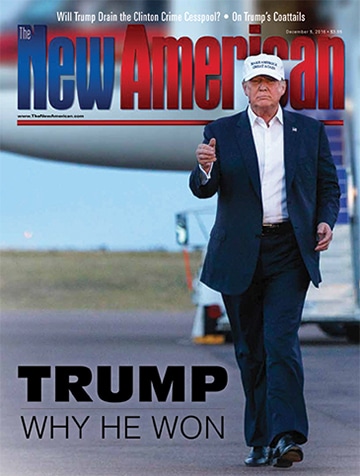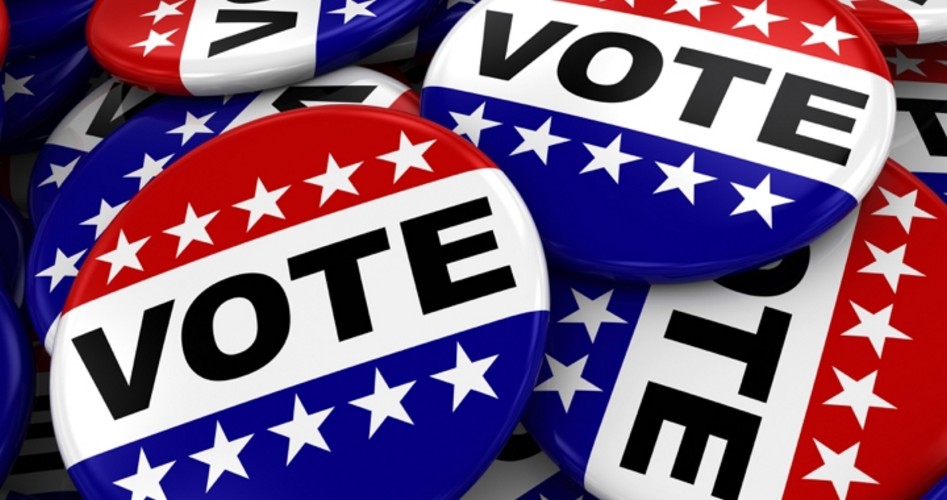Credit the Electoral College?
Now that this year’s presidential election has delivered the Oval Office to maverick Republican Donald Trump, liberals — who customarily cheer what they call “the democratic process,” as long as it gives the results that they want — have suddenly discovered the oft-maligned Electoral College. Hoping against hope for delivery from the Republican apocalypse, liberal pundits and wrathful extremists on university campuses alike are petitioning the Electoral College to set aside the preference of the unwashed masses on December 19, when the electors meet to actually elect the president.
Of course, most Americans think the presidential election is over, that the Voice of the People delivered its verdict on election day. For all other national, state, and local offices, it has indeed. But for the top ballot item, the presidential ticket, the popular vote has done nothing more than express a preference. The Electoral College will elect the president.
In recent history, the Electoral College has been possibly the most vilified institution defined by our Constitution. Many prominent political leaders have called for its abolition, including former presidential candidate Michael Dukakis, who declared to Politico.com a few days after Donald Trump’s presidential win that it was time to move to a more democratic system for choosing the president. “Hillary won this election, and when the votes are all counted, by what will likely be more than a million votes,” Dukakis fulminated. “So how come she isn’t going to the White House in January? Because of an anachronistic Electoral College system which should have been abolished 150 years ago.” Democrats were singing a similar tune after the election of 2000, in which Al Gore received more popular votes than George W. Bush, yet failed to win the presidency because of Electoral College math. So why not abolish the Electoral College and elect future presidents by a simple majority popular vote?
The Electoral College in its original form was spelled out in Article II, Section 1 of the U.S. Constitution (although only “electors” are mentioned; the term “Electoral College” did not become current until the 19th century, and is somewhat misleading, as the “College” never meets together as a body, but instead is constituted of separate electoral conferences in each state). According to the Constitution, the states may choose electors however they wish, although in practice, states have opted for a system of “pledged electors” in a winner-take-all system, who cast their votes for whomever the majority in their state votes for. States are apportioned electors according to the number of senators and representatives. This means that every state has at least three electoral votes (for two senators and at least one representative), and more populous states, with correspondingly larger numbers of representatives, have more. Thus the Electoral College system includes both a popular and a state component; electoral clout does depend on the size of the electorate (and hence, the number of votes cast) — but only on a state-by-state basis. This ensures that every state matters in a presidential election. While candidates may not spend limited campaigning time in low-population states such as Wyoming and Rhode Island, their electoral votes are extremely important, especially in a close election.
But why keep such a complex system in place, and why did the Founders devise it in the first place? Contrary to popular belief, the Founders had no intention of creating a “democracy.” This is because democracies, as Madison famously pointed out in the Federalist, No. 10, have no staying power. The Athenian democracy, which enjoyed a brief but brilliant heyday under Pericles, lasted a little over a century from its founding under Cleisthenes to its demise at the end of the Peloponnesian War, a victim of the unscrupulous ambitions of Pericles and Alcibiades. And as if to underscore the Founders’ trepidation concerning democracy, the French Revolution, with its democratic aims, turned France, and ultimately most of Europe, into a charnel house only a few years after America’s founding.
Yet despite the clear verdict of history on the hazards of democracy, many Americans continue to insist that the remedy for our political ills is a more democratic system, and that includes jettisoning the Electoral College.
In practice, however, the Electoral College is perhaps the most robust remaining check possessed by the states against a consolidated federal government. An America bereft of the Electoral College would see presidents elected by the masses in a few urban centers. The priorities of urban America would become the priorities of Washington. The farmers of Iowa, ranchers of Wyoming, and miners of Appalachia would have next to no voice in Washington, because their electoral clout, as expressed by their state governments, would be negligible. But the Founders wanted all states, large and small, and all constituencies, populous or otherwise, to have some clout, and the Electoral College has been a major equalizer offsetting the power of the federal government and of certain large population centers. In the 2000 election, it was actually tiny West Virginia, not Florida, that provided the handful of electoral votes that gave George W. Bush the win.
Another reason for the Electoral College system is a safeguard against the election of a tyrant. To be sure, many tyrants come to power via coups d’etat, violent revolution, and conspiracy, but a significant number have been elected by popular vote, including Germany’s Adolf Hitler and Venezuela’s Hugo Chavez. Italy’s Benito Mussolini was appointed prime minister by the king and asked to form a legitimate government, to broad popular acclaim. And it is not out of the realm of possibility that some presidential candidate as sinister as Hitler or Mussolini could one day find broad popular support in the United States. In such a case, the Electoral College could refuse to elect him or her. While this has never happened, the Electoral College could one day be the ultimate backstop for our republic, denying the presidency to some home-grown Hitler.
The Electoral College is not a democratic institution, but then, the United States is not supposed to be a democracy. It is one of the most important instruments of federalism, however, and should be preserved if our federal system is to endure.


